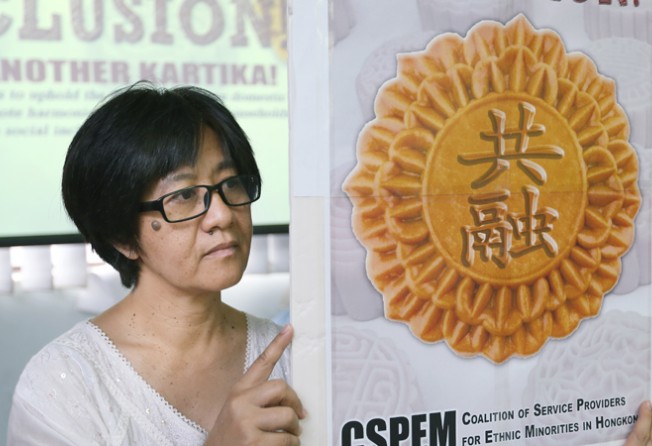Scrap domestic helper policies that lead to abuse, say groups
Advocates point to issues such as the live-in rule that they say hinder justice on the eve of a ruling in case involving Indonesian helper

Domestic helper-support groups are urging the government to scrap policies they say are contributing to the abuse of foreign helpers, with the Mission for Migrant Workers saying 1,000 helpers have sought help in the past six months.
The groups issued the call yesterday ahead of a District Court decision today in the case of alleged abuse of Indonesian domestic helper Kartika Puspitasari, 30.
In one instance, her employers allegedly forced her to put on a diaper and tied her to a chair while they went on holiday.
The migrant mission's director, Cynthia Ca Abdon-Tellez, said the requirement that maids must live with their employer meant they had nowhere to run when they were abused. "It also means the domestic helpers are on call 24 hours a day," she said.
The government should let the employer and the maids decide whether they should live together.
Abdon-Tellez also urged the government to scrap a policy that required helpers to leave Hong Kong two weeks after their contracts are terminated. The helpers should be given enough time to look for another job.
"It often forces the helpers to endure abuses so they can hold on to their jobs," she said, adding that they needed the jobs to support their families back home.
The Immigration Department said last month that when assessing a maid's employment visa application it would closely scrutinise details such as why a contract was being terminated in order to deter helpers from "job-hopping".
A case worker at the Bethune House shelter in Jordan, Esther Bangcawayan, said this would only make the maids more unwilling to report abuse to the police because once their contracts were terminated they may not be able to get a new visa.
Abdon-Tellez said about 1,000 maids had sought help from the mission in the past six months. Complaints included being forced to sleep in the toilet, not being allowed to shower for months, having canned food thrown at them and sexual assault.
"Some needed to receive psychological treatment," she said.
Shedding more light on the Immigration Department's new measure, Phoebe Lam Bik-che, from the Diocesan Pastoral Centre for Filipinos and Other Asian Migrants, said some helpers who failed to complete their first contract would be blacklisted. That meant no agency would be able to find them a new job.
Indonesian maid Ganika Diristiani, chairwoman of the Association of Indonesian Migrant Workers in Hong Kong, said every Indonesian helper who came to work in the city had to pay HK$21,000 in agent fees. The money would normally be deducted from their first seven months of salary.
If a helper failed to make the payment, her family back home had to bear the consequences.
She said this might explain why so many helpers tolerated unfair treatment.
The Immigration Department said that in the past 11 weeks it had refused 55 visa applications suspected to involve abuse of the arrangements for premature contract termination.